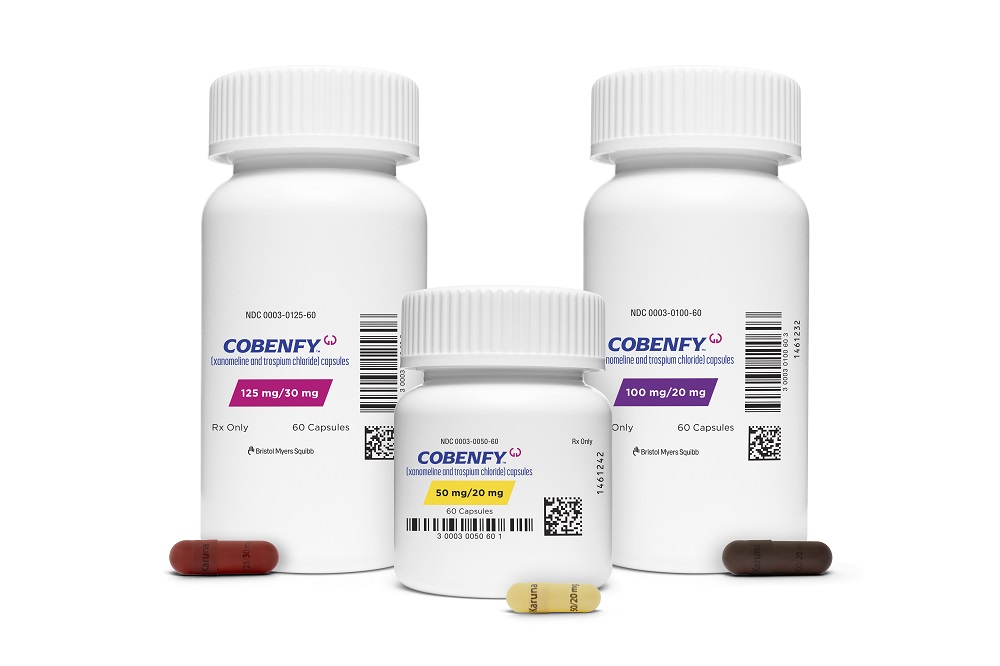
A Bristol Myers Squibb drug whose landmark FDA approval introduced the first novel mechanism for treating schizophrenia in decades has failed a pivotal test intended to support expanding its use, a disappointing result that puts a big dent in the commercial prospects for the projected blockbuster product.
The Phase 3 test evaluated the drug, Cobenfy, as an adjunct to atypical antipsychotics in adults whose schizophrenia symptoms were inadequately controlled by these standard-of-care drugs. In preliminary results released after Tuesday’s market close, BMS said Cobenfy achieved a numerical change in score according to a scale used to assess symptoms in psychotic disorders, but this change measured at week 6 was not enough to be statistically significant compared to a placebo. BMS said Cobenfy’s safety profile was consistent with prior tests of the drug.
BMS points to one bright spot in the preliminary data. The company said a post-hoc analysis shows “a notable difference in response” in patients whose background therapy was not risperidone, a widely prescribed atypical antipsychotic. But expanding Cobenfy’s approval to use on top of non-risperidone antipsychotics may require another clinical trial. In a prepared statement, BMS Chief Medical Officer Samit Hirawat said developing adjunctive treatments for schizophrenia has historically been difficult due to variable patient responses, stringent trial designs, and the complexities of showing incremental benefit beyond the established antipsychotics.
“Despite the complex and challenging nature of adjunctive studies, we wanted to pursue research in this area to help more patients struggling with this condition,” he said. “While the primary endpoint in this trial did not meet statistical significance, we need to complete our analysis and will plan to engage with the medical community and regulators to discuss these results and potential next steps.”
Cobenfy is an oral small molecule designed to target and block muscarinic receptors in the brain. The drug, formulated as a twice-daily capsule, selectively targets the M1 and M4 receptors without also hitting other muscarinic receptors that could trigger side effects. Cobenfy came to BMS via the pharma giant’s $14 billion acquisition of its developer, Karuna Therapeutics.
Last September, the FDA approved Cobenfy as a standalone treatment for schizophrenia in adults, marking the first regulatory nod in the emerging class of muscarinic receptor-targeting drugs. The drug was projected to become a blockbuster seller, and BMS has been conducting additional clinical testing to support potential expansion of use of the product. Besides the pivotal test of Cobenfy as an add-on therapy in schizophrenia, BMS is running a clinical trial evaluating the drug as a treatment for Alzheimer’s-associated psychosis.
Financial analysts still project Cobenfy will become a blockbuster product, but it won’t be as big as hoped. In a note sent to investors, Leerink Partners analyst David Risinger said the trial results demonstrate that the drug’s efficacy is modest, and “we fear that a [twice-daily] dosed antipsychotic with modest efficacy has far less potential than we originally anticipated.” By comparison, older antipsychotics offer once-daily dosing or even less frequent dosing schedules. After initially projecting Cobenfy could achieve $5.5 billion in revenue in 2030, Leerink has slashed that estimate to $2.6 billion.
William Blair analyst Matt Phipps takes a more optimistic view of Cobenfy’s commercial prospects. In a research note, he said that while the trial failure deals a blow to the market uptake strategy for Cobenfy, the clinical study in Alzheimer’s-associated psychosis is ongoing. Achieving clinical success with a tolerable safety profile in this indication would represent a significant market opportunity, he said. Phipps added that he’ll be looking for BMS to provide more detail on the Cobenfy launch and the longer-term market opportunity when the company reports first quarter 2025 financial results on Thursday.
Photo by Bristol Myers Squibb










